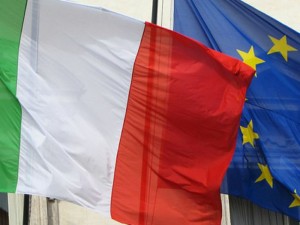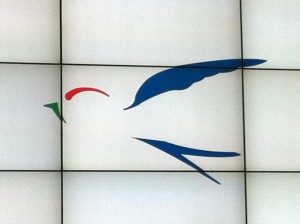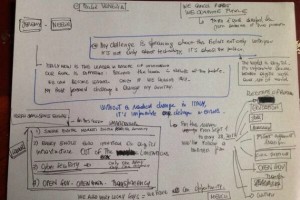On the 1st of July 2014 a new Trio came on stage for the Presidency of the Council of the European Union, starting with Italy (till the 31st of December) and will continue with Latvia and Luxembourg. While the Presidency itself carries on the tasks of preparing, coordinating and chairing the work of the Council, while also acting as honest broker to promote legislative decision and policy initiatives and to negotiate with members states, each Trio agrees on a programme that will be further developed by each state during its own mandate.
The current Trio, taking the lead right after the European Parliament elections, promised a more concrete approach in focusing citizens expectations to overcome the economic crisis and ensure a positive job trend, with a strong support to Youth Guarantee schemes and the Youth Employment Initiative; other focus areas will be sustainable growth, cleaner energy and climate policies, Digital Single Market, migration and border control, neighbouring policies and much more.(1)

In this context, Italy presented a full programme (2) underlining the priorities for this semester:
– Employment and Economic Growth, with a particular focus on Small and Medium Enterprises (or SMEs) and sustainable development, to be linked to Expo Milano 2015;
– Protection of fundamental rights, with a special look to migration and asylum policies;
– A more integrated foreign policy, focusing mostly on the Mediterranean and the Europe Neighbourhood policies including enlargement, and with an eye on the strategic partnership with Asian economies.
The focus on SMEs is a clear and evergreen Italian standard: to get some figures, SMEs represent 99,9% of Italian companies, with the highest EU rate in terms of micro-entities (94% vs the 92% EU average), contributing to more than half of the total employment rate and one third to added value; SMEs provide occupation for around 80% in Italy, way more compared to the 68% average in Europe.(3)
Less evident is the link to EXPO Milan 2015, whose theme is Feeding the Planet, Energy for Life, even more after the recent scandal regarding a huge flood of bribes estimated on around 1 million Euros.
 As well, the topic of fundamental rights is a very well known issue for Italy, considering the huge flow of illegal migrants coming from the southern bank of the Mediterranean sea, and the continuous and unattended requests for help and cohesion in adopting a shared solution to ensure the basic respect for human rights and a more coherent patrol of the EU borders.
As well, the topic of fundamental rights is a very well known issue for Italy, considering the huge flow of illegal migrants coming from the southern bank of the Mediterranean sea, and the continuous and unattended requests for help and cohesion in adopting a shared solution to ensure the basic respect for human rights and a more coherent patrol of the EU borders.
Last but not least, the focus on Mediterranean is evident thanks to the strategic position Italy has; after the Arab spring spread over north Africa in the past years and the failure of Barcelona II and the Union for the Mediterranean, it is time to put a cooperative approach back on the table to make sure that both banks of the sea get closer and to enhance a mutual beneficial trade cooperation. Of course, Ukraine and Syria will not be forgotten, being the hottest issues on the foreign EU political agenda at the moment.
Italy drew a challenging programme, for which a budget of 68 million Euros has been foreseen (Latvia’s budget for its Presidency term after this year foresees 100 million Euros budget), and will have a hard way to go to lead both the Council of the European Union and solve the home affairs issues arising. Italy is currently under the third non-elected government, with a maxi coalition formed by the main centre-right party (Partito Democratico, or PD) supported by a new-born centre-right party (Nuovo Centro Destra, or NCD) from a scission from Forza Italia, meaning a constant mediation in terms of policies so far didn’t bring the expected results (Matteo Renzi, the current Prime Minister, promised his first results after one month in office), nor the light after the tunnel is visible.

Moreover, the Presidency started with the English speech of Renzi at “Digital Venice” (high level meeting hosted in Venice, to support a sustainable digital economy and promoted by the Italian Presidency of the Council of the European Union), where the Prime Minister showed a poor language knowledge; the only clear part of his speech has been the closing part: “as in Italy we value food, now it’s time for lunch”.
Hopefully the path will be smoother for the Italian government, which just recently saw the failure in getting Federica Mogherini (current Italian Minister of Foreign Affairs) nominated as high commissioner for EU foreign policy. Baltic States and Poland rejected her candidature because of her lack of experience and her inadequate response to Russia regarding the Ukrainian crisis, while she rejected the accusations as “manipulation” against Italy; in the end, the next European Commission is still far from being formed, a further summit meeting has been called at the end of August.
The first delay of the mandate, not exactly the best to give a real boost compared to the need for “concrete measures” (as foreseen in Italian programme) but rather a well-known commonplace.
Written by Alfredo Sellitti, AEGEE-Salerno

